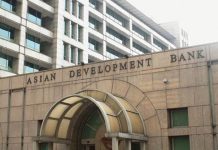ISLAMABAD: Experts have attributed the plunge in inflation in Pakistan to a significant drop in both food and non-food prices.
Food prices rose only 1.4% year-on-year and non-food items, such as oil, which comprise over 60% of the consumer price index, saw their inflation rate fall from 28.8% to 19.8% in 2024.
Talking to Media, Aamir Nazir Gondal, Additional Finance Secretary at the Finance Division, stated that the high base effect was one of the major factors behind this low inflation rate. “Inflation rates began rising in December 2022, peaking at 38% in May 2023, before starting to decline. The high base from May 2023 reduces the year-to-year rate for May 2024. However, as this base effect diminishes, an upsurge in inflation could occur from June 2024 onward,” he cautioned.
He further said that the sharp drop in food prices further decreased inflation, especially the 28.5% decline in wheat flour price, which was largely due to a bumper crop and high levels of wheat imports.
“While beneficial in the short-term, this may reduce farmers’ liquidity for the upcoming Kharif season, potentially affecting the output of major crops like rice, cotton and sugarcane, and leading to higher agricultural prices later in the year.”
Other key food items have also seen notable price changes. Fresh milk prices rose by only 9.2%, while chicken prices fell by 22.3% and egg prices by 8.5%. The decrease in livestock product prices could be due to a reduction in demand linked to stagnant real incomes.
Imported food items such as vegetable ghee and tea saw price drops of 16.5% and 1.4%, respectively, reflecting lower international commodity prices and a stable rupee.
Talking to Media, Dr Eatzaz Ahmed, a former State Bank memorial chairperson, noted that the significant decrease in inflation resulted from monetary tightening, fiscal consolidation, stabilised food supplies, favourable global commodity prices, and a steady exchange rate, reflecting the government’s commitment to price stability.
According to the Economic Survey of Pakistan for 2023-24, inflationary pressures significantly subsided in FY24. Headline inflation dropped to 11.8% in May 2024, the lowest in 30 months, compared to 38.0% in May 2023.
The non-food inflation rate decreased to 23.6% in urban regions and 17.2% in rural areas. Gas prices remained 317% higher compared to the previous year, and electricity costs were up by 59%.
Additionally, the government has planned to raise electricity prices again starting in July as part of an agreement with the IMF for the upcoming bailout package. –INP






